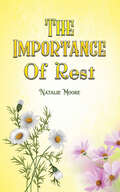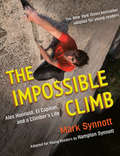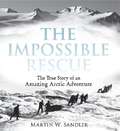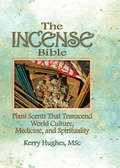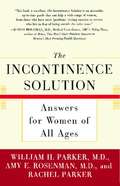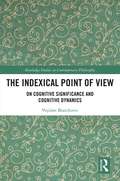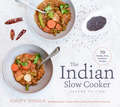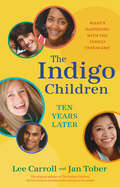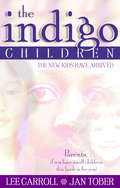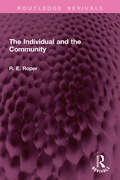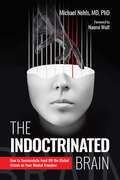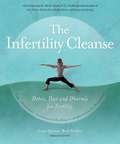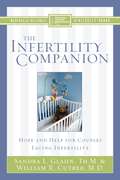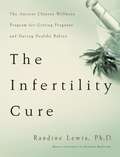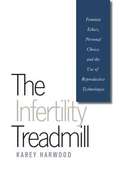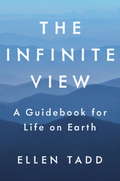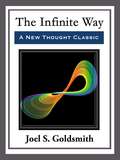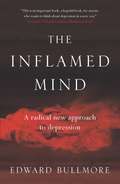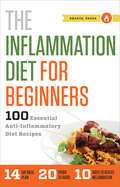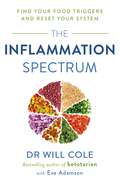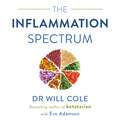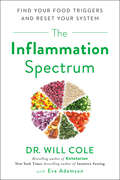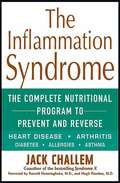- Table View
- List View
The Importance of Rest
by Natalie MooreAt just 21 years old, Natalie was diagnosed with chronic fatigue syndrome/M.E., a debilitating health condition. In her quest for recovery, Natalie embarked on a long and challenging journey, learning that hope is never lost. This true story chronicles her path, highlighting how she leaned on her strong Christian faith to find resilience. Natalie’s journey aims to inspire others who are also struggling with chronic illness and mental health challenges. Through her experiences, she offers a message of hope and strength to those facing similar battles.
The Impossible Climb (Young Readers Adaptation): Alex Honnold, El Capitan, and a Climber's Life
by Mark Synnott Hampton SynnottA middle grade adaptation of the adult bestseller that chronicles what The New York Times deemed "one of the great athletic feats of any kind, ever": Alex Honnold's free-solo ascent of El Capitan in Yosemite National Park.On June 3, 2017, as seen in the Oscar-winning documentary Free Solo, Alex Honnold achieved what most had written off as unattainable: a 3,000-foot vertical climb of El Capitan in Yosemite National Park, without a rope or harness. At the time, only a few knew what he was attempting to do, but after topping out at 9:28 am, having spent just under four hours on this historic feat, author Mark Synnott broke the story for National Geographic and the world watched in awe.Now adapted for a younger audience, The Impossible Climb tells the gripping story of how a quiet kid from Sacramento, California, grew up to capture the attention of the entire globe by redefining the limits of human potential through hard work, discipline, and a deep respect for the natural world.
The Impossible Rescue: The True Story of an Amazing Arctic Adventure
by Martin W. SandlerThe dead of an Arctic winter. Whaling ships full of men, stranded in ice. Follow three rescuers in a race against time--and all odds--in this heartpounding true adventure. Martin W. Sandler takes us on every step of their riveting journey, facing raging blizzards, killing cold, injured sled dogs, and setbacks to test the strongest of wills.
The Incarnation Game
by Asma ElferkoussMany times, I felt guilty when people told me: "Just live in the present moment" or "You only have to dwell in your body."... That was simply impossible, not because I didn't try... It's not that I didn't want to, but I felt I couldn't do it otherwise. My survival instinct had developed so effective avoidance mechanisms and strategies that I didn't even realize it myself. I now realize the purpose of all this life and of the experiences and reflections that I wanted to share with you, to guide you on your way and to support you in "the game of incarnation".
The Incense Bible: Plant Scents That Transcend World Culture, Medicine, and Spirituality
by Dennis J Mckenna Kerry HughesMake a spiritual connection to nature with real, raw, natural incenseThe Incense Bible is a comprehensive guide to the spiritual meaning of real, raw, natural incense and how to use it in prayer, meditation, or simply in creating a home environment to "reconnect" with divinity and nature. This unique book examines the spiritual and ritual uses of "pure" incense (not sticks, cones, or synthetic mixtures), explores our attraction to it, and explains how we can use it at home to increase wellness. Filled with easy-to-use references and easy-to-understand technical information, the book also looks at the use of incense in health and medicine, a history of its use in a variety of countries and cultures, and various types of raw incense, including eucalyptus, sandalwood, sweet grass, agarwood, frankincense, and myrrh.The Incense Bible examines aspects of spirituality and religion, health and medicine, botanical medicines, ethnobotany, and history of real incense-not the low-quality, processed, synthetic fragrances most people think of as "incense." This enlightening and entertaining book, written in everyday language and filled with photgraphs, examines why incense appeals to our sense of smell, of adventure, and of spiritual and physical well-being-and has for centuries. The book looks at the use of incense for purifications and cleansings, creative inspiration, meditation, worship and prayer, for inducing dreams and sleep, to improve learning and problem solving, and as a perfume for clothes, hair, and body.Topics examined in The Incense Bible include: types of raw incense, including balsam, cedar, mugwort and moxa, and white sage safety how the sense of smell works the link between taste and scent scent and memory allergies and sensitivities oils and flower essences for healing how to make incense incense materials and symbols the use of incense in Egyptian, Greek, and Roman times, in Buddhism and Shamanism, in Israel, in the Catholic Church, in Native American sweat lodges, and in the African rainforest and much more!The Incense Bible is an essential resource for anyone interested in health and natural medicine, botanical medicines, and ethnobotany, and for anyone seeking to express their spirituality by reconnecting to nature
The Incontinence Solution
by William Parker Rachel Parker Amy RosenmanMillions of women experience difficulties controlling their bladders but suffer in silence, reluctant to speak to their doctors -- or even to their best friends -- about the problem. Here, at last, women will find the most up-to-date medical explanations and state-of-the-art solutions, including:Controversial links between current childbirthing practices -- like episiotomy, the use of forceps, and long labor -- and the development of incontinence later in life. Advanced diagnostic tests that enable women to quickly find the most effective treatment. Nonsurgical treatments: pelvic muscle exercises and oral medications that really work. Surgical options featuring new minimally invasive outpatient procedures.
The Indexical Point of View: On Cognitive Significance and Cognitive Dynamics (Routledge Studies in Contemporary Philosophy)
by Vojislav BozickovicThis book argues that there is a common cognitive mechanism underlying all indexical thoughts, in spite of their seeming diversity. Indexical thoughts are mental representations, such as beliefs and desires. They represent items from a thinker's point of view or her cognitive perspective. We typically express them by means of sentences containing linguistic expressions such as 'this (F)' or 'that (F)', adverbs like 'here', 'now', and 'today', and the personal pronoun ‘I’. While generally agreeing that representing the world from a thinker's cognitive perspective is a key feature of indexical thoughts, philosophers disagree as to whether a thinker's cognitive perspective can be captured and rationalized by semantic content and, if so, what kind of content this is. This book surveys competing views and then advances its own positive account. Ultimately, it argues that a thinker's cognitive perspective - or her indexical point of view - is to be explained in terms of the content that is believed and asserted as the only kind of content that there is which thereby serves as the bearer of cognitive significance. The Indexical Point of View will be of interest to philosophers of mind and language, linguists, and cognitive scientists.
The Indian Slow Cooker: 70 Healthy, Easy, Authentic Recipes
by Anupy Singla&“India&’s [cuisine] is perhaps best suited to the steady simmer of a slow cooker . . . easy, healthful recipes with traditional flavors. &” —Better Homes & Gardens This updated edition of Anupy Singla&’s bestselling debut cookbook includes fifteen additional Indian recipes developed specifically for the slow cooker. Since its original publication in 2010, The Indian Slow Cooker has become a touchstone primer for everyone seeking an accessible entry point to cooking authentic, healthy Indian fare at home. Taking full advantage of the ease and convenience of the slow cooker, these recipes are simpler than their traditional counterparts and healthier than restaurant favorites, as they don&’t require extra oil and fat. Singla&’s &“Indian Spices 101&” chapter introduces readers to the mainstay spices of an Indian kitchen, as well as how to store, prepare, and combine them in different ways. Among these sixty-five recipes are all the classics—specialties like dal, palak paneer, and aloo gobi—and dishes like butter chicken, keema, and much more. The result is a terrific introduction to healthful, flavorful Indian food made using the simplicity and convenience of the slow cooker. &“Next time you have a hankering for Indian food, don&’t think take-out. Think ahead. That&’s the message from Anupy Singla, author of The Indian Slow Cooker who is on a mission to correct misperceptions about Indian food. &” —Associated Press &“Because Indian dishes are rich in spices and robust flavors, they stand up well in slow cookers. Singla actually developed the recipes specifically for the slow cooker so the techniques and ingredients work well in the machine. &” —Good Housekeeping
The Indigo Children Ten Years Later: What's Happening With The Indigo Teenagers!
by Lee Carroll Jan Tober"The Indigo Children? Oh yeah . . . I know about them! Wasn’t there a movie about that? They’re those special kids who do psychic things and who have dark blue auras, right?" If that’s your take on the Indigos, then you really need to read this book. The Indigo Children are not super-psychic kids with dark blue auras. In fact, the Indigo moniker has nothing to do with auras or being psychic. Some of these teenagers are actually the ones who are strapping on bombs and bringing guns to school, so you can see that the subject here is far more profound than the sensational hype that often accompanies it. This book is all about the children of our planet, what really might be happening with them, why they do what they do, and what we can do to help them and our educators survive all this. In addition, the Indigos are slowly beginning to join the work force (gasp)! Join Lee Carroll and Jan Tober, the original authors of The Indigo Children, for a profound and frank discussion of this topic, ten years later. After all this time, what do some in higher education say about these kids? What do industry leaders say? Humanity is evolving, so you should definitely be aware of what these individuals are saying. It’s time to stop the circus that has been created around this subject and get down to finding out how to help these children survive an earth they don’t understand . . . or perhaps it’s just you they don’t understand. . . . Join the leaders of education and industry who speak out in this book for a peek into the real issues surrounding the Indigos, and perhaps the future of humanity!
The Indigo Children: The New Kids Have Arrived
by Lee Carroll Jan ToberThe Indigo Child is a boy or girl who displays a new and unusual set of psychological attributes, revealing a pattern of behavior generally undocumented before. Throughout this work, Carroll and Tober bring together some very fine minds (doctors, educators, psychologists, and more) who shed light on the Indigo Child phenomenon. These children come in "knowing" who they are—so they must be recognized, celebrated for their exceptional qualities, and guided with love and care. This book is a must for parents!
The Individual and the Community (Routledge Revivals)
by Reginald E. RoperFirst published in 1922, The Individual and the Community is a simple statement of the principles which underlie human activities, and condition the combined efforts of two or more individuals: with a comparison of human and animal communities, a distinction between community and State, and a forecast of communal evolution. It is a handbook of human co-existence. This book will be of interest to students of philosophy.
The Indoctrinated Brain: How to Successfully Fend Off the Global Attack on Your Mental Freedom
by Michael NehlsGlobal War on the Human Brain Throughout the world, mental capacity is declining, especially among young people, while depression rates are rising dramatically. Meanwhile, one in forty men and women suffers from Alzheimer's, and the age of onset is falling rapidly. But the causes are not being eliminated, quite the opposite. Can this just be coincidence? The Indoctrinated Brain introduces a largely unknown, powerful neurobiological mechanism whose externally induced dysfunction underlies these catastrophic developments. Michael Nehls, medical doctor and internationally renowned molecular geneticist, lays out a shattering chain of circumstantial evidence indicating that behind these numerous negative influences lies a targeted, masterfully executed attack on our individuality. He points out how the raging wars against viruses, about climate change, or over national borders are—more likely intended than not—fundamentally providing the platform for such an offensive against the human brain that is steadily changing our being and is aimed at depriving us of our ability to think for ourselves. But it is not too late. By exposing these brain-damaging processes and describing countermeasures that anyone can take, Nehls brings light and hope to this fateful chapter in human history. Nothing less will be decided than the question of whether our species can retain its humanity and its creative power or whether it will lose them irretrievably.
The Infertility Cleanse
by Tami Quinn Beth HellerWomen who are trying to conceive will find a holistic approach in this hands-on manual. Step-by-step guidelines help implement a three-part program-of yoga, hypoallergenic and anti-inflammatory nutrition, and stress-reduction techniques-to cleanse the body, mind, and spirit in preparation for pregnancy. In addition, this program draws on cleansing methods from traditional Chinese medicine and Ayurveda and has been specifically designed for women who are trying naturally or with assisted-reproduction plans. Also based on new clinical research that suggests that gut health, chronic inflammation, and environmental toxins may be root causes of infertility, this important book offers all women a natural, holistic approach to readying the womb for a child and includes a DVD of yoga exercises.
The Infertility Companion: Hope and Help for Couples Facing Infertility
by Sandra L. Glahn William R. CutrerEndorsed by the Christian Medical Association. A Comprehensive Christian Guide to the Challenges of Infertility • Medical • Ethical • Emotional • Marital • Spiritual • Biblical Infertility changes everything, shattering dreams and breaking hearts. But hope is available—today more than ever. The Infertility Companion draws on the Bible and on current medical knowledge, including the latest research, to shed light on such questions as: •Can people of faith ethically use high-tech infertility treatments? •How do we make moral, biblical decisions about medical treatment, third-party reproduction, stem cell research, and embryo adoption? •Is God punishing me? •Does God even care? •Will adoption increase our chances of getting pregnant? •How can we reduce the stress of infertility on our marriage relationship? •How can we keep sex from becoming a chore? These theologically trained authors have taught at a variety of conferences on infertility, pregnancy loss, and adoption, and they have helped thousands of couples to face the future through their message of encouragement. The Infertility Companion includes discussion questions and a workbook suitable for individuals, couples, or small groups. Full of practical tips and true stories, this book will guide couples past the ethical pitfalls of assisted reproductive technologies as they travel the difficult road ahead. An all-encompassing guide for the Christian infertility patient. Where other books fall short, this “companion” aids the patient not only with the physical and emotional aspects of this journey, but also helps answer the tough spiritual and ethical questions that arise in a couple’s desire to conceive.—Julie Watson, Conceiving Concepts
The Infertility Cure: The Ancient Chinese Wellness Program for Getting Pregnant and Having Healthy Babies
by Randine LewisInfertility affects one out of six couples today. Dr. Lewis presents a groundbreaking alternative approach to infertility, explaining how she used traditional Chinese medicine to treat her own infertility, successfully conceiving and giving birth to two children.
The Infertility Treadmill: Feminist Ethics, Personal Choice, and the Use of Reproductive Technologies
by Karey HarwoodCombining attention to lived experience with the critical tools of ethics, Karey Harwood explores why many women who use high-tech assisted reproduction methods tend to use them repeatedly, even when the results are unsuccessful. With a compassionate look at the individual decision making behind the desire to become pregnant and the use of assisted reproductive technologies (ART), Harwood extends the public conversation beyond debates about individual choice by considering the experiences of families and by addressing the broader ethical problems presented by these technologies.
The Infinite View: A Guidebook for Life on Earth
by Ellen TaddWritten by internationally revered clairvoyant counselor and educator Ellen Tadd, The Infinite View is a spiritual classic in the making. People often lean towards either trusting their gut or relying on their analytical mind, but Tadd urges readers to consider a new approach that allows both emotions and the intellect to be guided by wisdom. Through describing how the Spirit, soul, and personality are integrated, she guides readers in deepening and expanding their perceptions to discover practical solutions to everyday challenges. According to Tadd, Spirit is the God Force that animates and empowers us and suffuses everyone and everything. But while Spirit is conscious and communicative, we haven’t been taught to look for or listen to it. In fact, most of us have been conditioned not to look or listen. When we choose to attune our conscious mind with Spirit, we find ourselves able to engage life with greater clarity—even when it tests us through illness, death, loneliness, anxiety, or fear. The Infinite View offers tools and insights needed to achieve this attunement. Drawing on her personal narrative, as well as the experiences of her students, Tadd helps readers transform their understanding of themselves and the world around them.From the Hardcover edition.
The Infinite Way: With linked Table of Contents
by Joel S. Goldsmith"All the error that has existed down the ages is founded on the theory or belief of two worlds, one the heavenly kingdom, or spiritual life, and the other a material world or mortal existence, each separate from the other. In spite of this sense of two worlds, men have always attempted to bring harmony into the discords of human existence through an attempt, by prayer, to contact this other world, or spiritual realm, and to bring Spirit, or God, to act upon the so-called material existence. Let us begin with the understanding that our world is not an erroneous one, but rather that the universe in which we live is the realm of reality about which man entertains a false concept. The work of bringing health and harmony into our experience is not, then, getting rid of, or even changing, a mortal material universe, but correcting the finite concept of our existence." This is the first edition text.
The Inflamed Mind: A Radical New Approach To Depression
by Edward BullmoreA radical new approach to depression from the publishers who brought you Michael Mosley’s international bestsellers Worldwide, depression will be the single biggest cause of disability in the next 20 years. But treatment for it has not changed much in the last three decades. In the world of psychiatry, time has apparently stood still . . . until now. In this game-changing book, world neuroscience expert Professor Edward Bullmore reveals the breakthrough new science on the link between depression and inflammation of the body and brain. He explains how and why we now know that mental disorders can have their root cause in the immune system, and outlines a future revolution in which treatments could be specifically targeted to break the vicious cycle of stress, inflammation and depression. The Inflamed Mind goes far beyond the clinic and the lab, representing a whole new way of looking at how mind, brain and body all work together in a sometimes misguided effort to help us survive in a hostile world. It offers insights into the story of Western medicine, how we have got it wrong as well as right in the past, and how we could start getting to grips with depression and other mental disorders much more effectively in the future. 'An important book, a hopeful book, for anyone who wants to think about depression in a new way.' Tom Insel MD, Co-founder and President, Mindstrong Health UK 'Edward Bullmore has led us out of the dark ages and shone a light on the crucial link between systemic inflammation and mental illness. This book … heralds a new field of personalised psychiatry in the same way that we are seeing personalised therapy in cancer. Sir Robert Lechler, President, Academy of Medical Sciences (UK)
The Inflammation Diet for Beginners: 100 Essential Anti-Inflammatory Diet Recipes
by Shasta PressInflammation is the number one cause of modern ailments including allergies, arthritis, diabetes, and cardiovascular disease. The Inflammation Diet for Beginners will show you how an inflammation diet can help you prevent major disease and permanently reduce inflammation. When we consume unhealthy ingredients such as saturated fats, sugary foods, and processed wheat, we trigger our body's natural immune response to dangerous stimuli, a response that causes inflammation. With The Inflammation Diet for Beginners, you'll learn which foods to cut out and which foods to eat in order to reduce this life-threatening reaction and get rid of the painful symptoms of inflammation. The Inflammation Diet for Beginners shows you the healthy, long-lasting way to reduce inflammation, with: 100 simple and nourishing inflammation diet recipes 14-day inflammation diet meal plan to help you relieve symptoms quickly Overview of the science behind the inflammation diet and how it can permanently improve your health 20 inflammatory foods that you must avoid 10 best ways to achieve lasting change An inflammation diet is the single most important tool for reducing inflammation and returning your body to optimum health. The Inflammation Diet for Beginners is your guide to getting-and staying-healthy again.
The Inflammation Spectrum: Find Your Food Triggers and Reset Your System
by Dr Will ColeThe Inflammation Spectrum, Dr Will Cole's follow up to Ketotarian, teaches us how inflammation is often the catalyst for most common health woes. Arriving at a time where issues of inflammation and gut health are becoming increasingly prominent within mainstream discourses, Dr Will Cole offers us a solution to this growing issue. The Inflammation Spectrum teaches us that ultimately how we feel is symbiotically linked to what we consume; indeed, food, in Cole's words, 'constantly and dynamically influences' our health. Subsequently he teaches readers how to do nutrition the right way, providing us with a personal guide which seeks to aid readers to find out which foods their bodies love, hate and need to feel great! Cole's book informs us to think twice before consuming pharmaceutical drugs to "fix" issues of inflammation and instead proposes that readers reassess their eating habits, using 'food as thy medicine'. This book, Dr Mark Hyman suggests, is for 'anyone who is fed up with fad diets' as Cole uses his years of experience in functional-medicine to teach us how to love our bodies enough to nourish it with delicious, healing foods. From personal quizzes to scientific breakdowns The Inflammation Spectrum offers empowering advice and puts readers on the path to achieving food freedom and optimal health.
The Inflammation Spectrum: Find Your Food Triggers and Reset Your System
by Dr Will ColeThe Inflammation Spectrum is a game-changing guide which aids readers to overcome their health woes through doing nutrition the right way.The Inflammation Spectrum, Dr Will Cole's follow up to Ketotarian, teaches us how inflammation is often the catalyst for most common health woes.Arriving at a time where issues of inflammation and gut health are becoming increasingly prominent within mainstream discourses, Dr Will Cole offers us a solution to this growing issue. The Inflammation Spectrum teaches us that ultimately how we feel is symbiotically linked to what we consume; indeed, food, in Cole's words, 'constantly and dynamically influences' our health. Subsequently he teaches readers how to do nutrition the right way, providing us with a personal guide which seeks to aid readers to find out which foods their bodies love, hate and need to feel great!Cole's book informs us to think twice before consuming pharmaceutical drugs to "fix" issues of inflammation and instead proposes that readers reassess their eating habits, using 'food as thy medicine'. This book, Dr Mark Hyman suggests, is for 'anyone who is fed up with fad diets' as Cole uses his years of experience in functional-medicine to teach us how to love our bodies enough to nourish it with delicious, healing foods. From personal quizzes to scientific breakdowns The Inflammation Spectrum offers empowering advice and puts readers on the path to achieving food freedom and optimal health.(P)2019 Blackstone Publishing
The Inflammation Spectrum: Find Your Food Triggers and Reset Your System
by Eve Adamson Will ColeFrom the international bestselling author of Ketotarian comes a revolutionary new plan to discover the foods your unique body loves, hates, and needs to feel great.In Dr. Will Cole's game-changing new book, readers will discover how inflammation is at the core of most common health woes. What's more, it exists on a continuum: from mild symptoms such as weight gain and fatigue on one end, to hormone imbalance and autoimmune conditions on the other. How you feel is being influenced by every meal. Every food you eat is either feeding inflammation or fighting it. Because no one else is you, the foods that work well for someone else may not be right for your body. At heart, The Inflammation Spectrum is about learning to love your body enough to nourish it with delicious, healing foods. You'll find insightful quizzes and empowering advice to put you on a path toward food freedom and overall healing, once and for all.
The Inflammation Spectrum: Find Your Food Triggers and Reset Your System
by Will ColeThe Inflammation Spectrum, Dr Will Cole's follow up to Ketotarian, teaches us how inflammation is often the catalyst for most common health woes. Arriving at a time where issues of inflammation and gut health are becoming increasingly prominent within mainstream discourses, Dr Will Cole offers us a solution to this growing issue. The Inflammation Spectrum teaches us that ultimately how we feel is symbiotically linked to what we consume; indeed, food, in Cole's words, 'constantly and dynamically influences' our health. Subsequently he teaches readers how to do nutrition the right way, providing us with a personal guide which seeks to aid readers to find out which foods their bodies love, hate and need to feel great! Cole's book informs us to think twice before consuming pharmaceutical drugs to "fix" issues of inflammation and instead proposes that readers reassess their eating habits, using 'food as thy medicine'. This book, Dr Mark Hyman suggests, is for 'anyone who is fed up with fad diets' as Cole uses his years of experience in functional-medicine to teach us how to love our bodies enough to nourish it with delicious, healing foods. From personal quizzes to scientific breakdowns The Inflammation Spectrum offers empowering advice and puts readers on the path to achieving food freedom and optimal health.
The Inflammation Syndrome: The Complete Nutritional Program To Prevent And Reverse Heart Disease, Arthritis, Diabetes,Allergies, And Asthma
by Jack ChallemWhat is the Inflammation Syndrome? It's the cumulative effect of low-grade inflammation -including the aches and pains that we all experience-that grows into chronic, debilitating disease. The Inflammation Syndrome breaks down your body, making you feel old, tired, and sick. Triggered by inflammatory foods in your diet, the Inflammation Syndrome wreaks havoc on your health, paving the way for such serious diseases as heart disease, diabetes, Syndrome X, obesity, arthritis, allergies, asthma-even some cancers. Written by the best-selling coauthor of the groundbreaking Syndrome X, the book that helped bring the attention of the public to insulin resistance and the diabetes epidemic, The Inflammation Syndrome is the first major book to describe the broad role inflammation plays in disease-and to show you how to reverse and heal it. Drawing on the cutting-edge research being done all over the world-research that has led to the successful treatment of many people who were considered unbeatable or incurable by conventional medicine-Jack Challem provides a revolutionary approach to healing inflammation through an easy-to-follow nutritional program. Challem includes quizzes and tests to assess inflammation levels and risks; anti-Inflammation Syndrome recipes and menu plans; and easy ways to use healthy fats and other nutrients to quench the fires of inflammation. Challem reveals many of the hidden dangers in foods that set the stage for inflammation, causing aches, pains, and allergic reactions and increasing the long-term risk of life- threatening diseases. He shares the latest information on the problems with conventional prescription and over-the- counter anti-inflammatory drugs. He also offers dramatic case histories of patients treated by nutritionally oriented practitioners and up-to-the-minute information on and dosage recommendations for the best natural anti-inflammation supplements, such as fish oils, vitamin E, herbs, and many other natural remedies. Providing a powerful plan to safely prevent and overcome inflammatory disorders, The Inflammation Syndrome shows just how easy it can be to take charge of one's diet and health-and to feel great.
